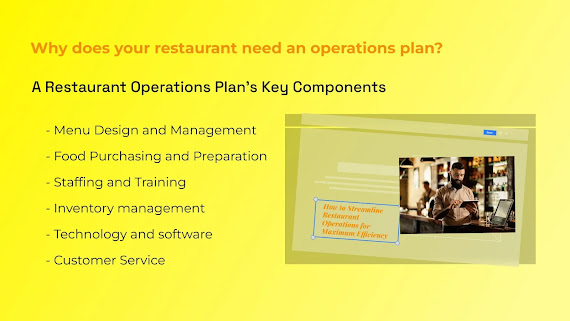Social Media Marketing Strategies for Your Restaurants: 9 Tips
Crafting a successful social media strategy for your restaurant is crucial for maintaining top-of-mind awareness without overwhelming your audience. It involves the delicate art of showcasing your popular dishes, sharing daily specials, and promoting upcoming events while preserving the inviting atmosphere of your establishment.
Don't fret if you find the prospect of building a social media marketing strategy for your restaurant daunting; we're here to help! This comprehensive guide covers the fundamentals, step-by-step processes, and valuable social media marketing tips. Whether you're uncertain about what to post or struggle to stay consistent, we've got you covered.
Let's dive in.
How to Leverage Social Media Marketing
Social media serves several essential purposes for your restaurant:
Inform and Engage Customers: Use social media as a means to communicate with your current and potential customers effectively.
Boost Online Visibility: Make your restaurant more discoverable when people search for dining options online.
Showcase Your Culinary Creations: Present your food and recipes in a visually enticing manner to entice diners.
Highlight Menus and Promotions: Share your seasonal, daily, and weekly menus, along with new promotions and menu items.
Promote Events: Advertise upcoming events hosted by your restaurant.
Share Recipes: Offer insights into your culinary expertise by sharing recipes.
Offer Behind-the-Scenes Access: Give followers a glimpse behind the scenes with captivating photos and videos.
Build Credibility: Use social media to establish your restaurant as a professional and reputable establishment.
Social Media Marketing Tips for Restaurants
Identify Your Target Audience: Tailor your social media channels and content to your desired customer demographic. Utilize CRM data to gain insights into customer preferences, including age, gender, new vs. repeat customers, and order history.
Create Exceptional Content: Your social media posts represent your brand, often serving as the first point of contact with potential customers. High-quality, engaging, and remarkable content is essential to stand out in a crowded digital landscape.
Establish a Consistent Brand Voice: Developing a consistent brand voice is pivotal in maintaining a cohesive online presence. Your brand tone should reflect the type of restaurant you operate and the ambiance you provide.
Create a Unified Visual Identity: Your restaurant's visual identity should remain consistent across all social channels to enhance brand recognition and drive visitors to your pages.
Prioritize Consistency: Frequent posting is essential to remind diners about your brand. Utilize various content formats, such as Instagram stories, reels, and Facebook stories, to maintain engagement. Consistency is key, as active accounts tend to perform better with social media algorithms.
Utilize Multiple Platforms: Leverage multiple social media platforms to reach a broader audience. Ensure quality content even if you choose to focus on specific platforms, and consider using social media management tools for streamlined operations.
Engage With Your Followers: Build relationships with your followers and potential customers by actively participating in their content, responding to comments, and addressing inquiries in direct messages. Repost user-generated content to foster a sense of community.
Invest in Paid Social Advertising: While not an organic method, paid social media advertising can be beneficial. Boost specific posts to reach a broader audience and consider collaborating with influencers or food bloggers to expand your reach.
Host Contests: Organize contests on platforms like Instagram to boost engagement and follower count. Keep contest rules simple, such as liking, saving, tagging friends, or sharing your post.
Elements of a Great Restaurant Social Media Post
There's no such thing as a perfect social media post, but you can certainly create an outstanding one. Here's what your posts should encompass:
Clear Branding: Maintain consistent branding elements across your posts.
Engaging Copy: Craft compelling, engaging, and concise copy that resonates with your audience.
Relevant Hashtags: Use appropriate hashtags to increase the discoverability of your content.
Call to Action: Encourage interaction or action from your audience.
This blog highlights the significance of social media marketing for your restaurant's website. To master restaurant social media marketing and discover effective strategies for Facebook and Instagram, check out our upcoming blog.




Comments
Post a Comment